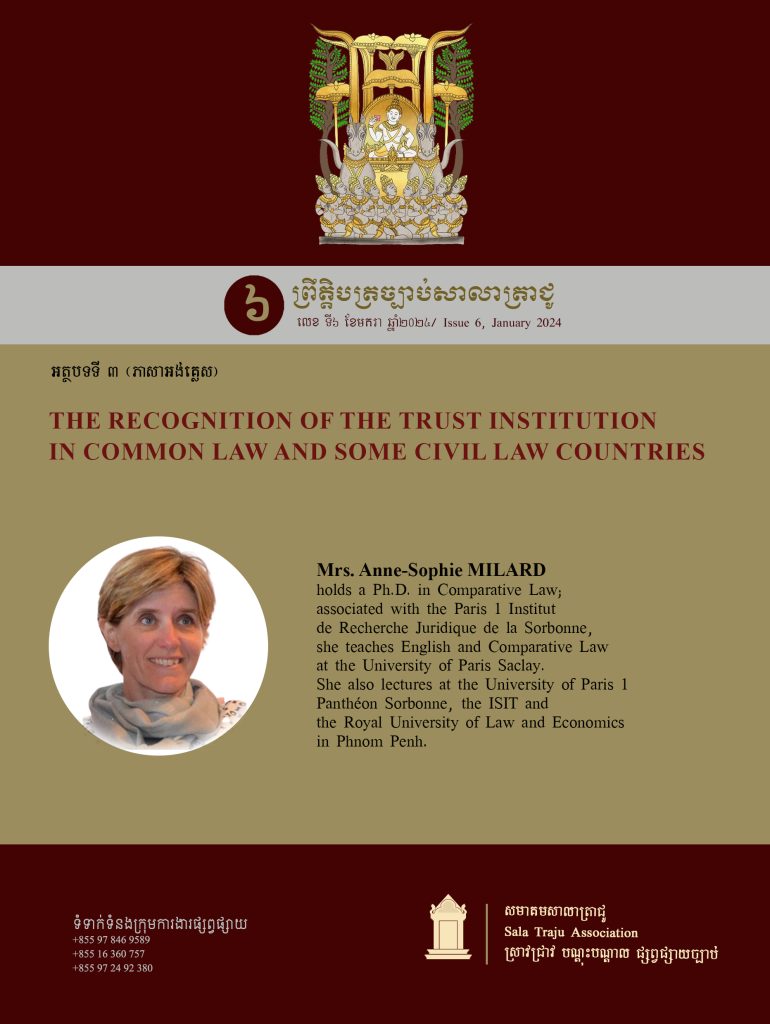The Recognition of the Trust Institution in Common Law and some Civil Law Countries

By Mrs. Anne-Sophie MILARD
INTRODUCTION
The trust is a legal instrument which has been implemented for centuries in Common Law countries where it usually enjoys a good reputation, if not a very good one. Recently, it has started to be adopted in some Civil Law legal systems, but when so, it has generally led to compromise in order to detach it from its strict Common Law specificity and make it look more Civilian, as if those countries were remaining reserved about, not to say suspicious of, the trust instrument as conceived in Common Law. This attitude may seem surprising at a time if not of legal globalisation at least of smooth adoption of some legal standards from one country to another. The case of France is interesting, which, in spite of having adopted the fiducie, remains fundamentally opposed to Common Law trusts; Cambodia may have followed a different approach when endorsing its own trust law but also closely supervises its implementation. We, therefore, propose to review the trust instrument according to its most important Common Law principles (I), so as to better analyse the examples of the French and Cambodian legal systems in view of their own principles of fiducies-trusts, thus highlighting the main differences with their Common Law counterpart (II).

